Bucket teeth are one of those parts that you tend not to think about replacing as much as you would a final drive or sprocket. However, not replacing them as they wear down can compound into
higher costs. Worn teeth are less effective at pushing into material and thus can lead to more strain being put onto your machines, costing you time, fuel, and money. But what kind of teeth should you go for when looking for replacements?

What To Consider Before Purchasing
When a tooth breaks or wears on your excavator, it can be tempting only to purchase the replacement tooth, but teeth rarely wear that unevenly. When one tooth becomes too worn, the others aren’t far behind. It may be time to investigate a full set of teeth better suited for the type of work you do.
Before purchasing, consider the conditions and jobs you typically do. Mining operations are very different from residential excavation and require different tools. You wouldn’t use a cooking spatula instead of a shovel, so why use teeth not suited for the work you’re doing? Soft, easy-to-break dirt requires different teeth than harder, rocky ground.
It’s also important to consider how much shock and what kind of conditions your teeth may face on the job, as this can influence the type of material you end up going with. Cast iron or cast teeth have different durability thresholds than forged teeth, and different costs.
Order Bucket Teeth Online 24/7
Visit the ConEquip Online Store
Search by part number or machine model for fast results.
Kinds of Bucket Teeth
When looking into purchasing new bucket teeth, you have to think about what kind of work you’ll primarily be doing and what kind of material you’ll be working in, as this will determine the shape and material you’ll need. Here are the primary styles of teeth and what they’re used for.
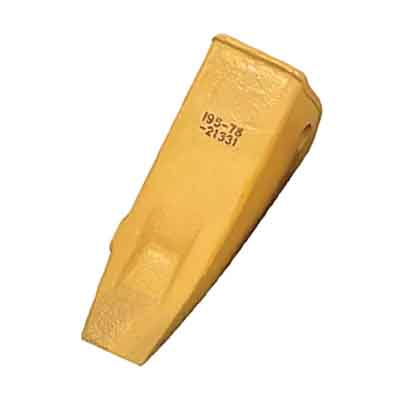
Fang and Chisel Teeth
Chisel Teeth are the most common type of teeth and are made for general use. They excel at working softer earth, but fall short when dealing with compacted soil as they do not have a point to break the surface
tension of the soil and get underneath.
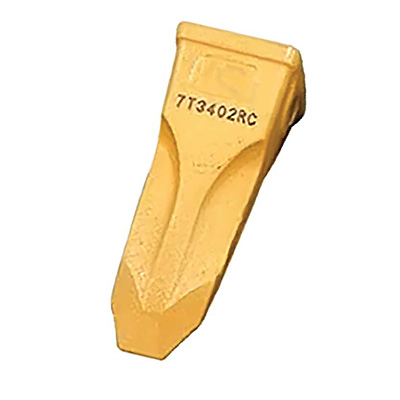
Rock-Chisel Teeth
Rock-chisel teeth are similar to chisel teeth as they have a square leading edge, but unlike chisel teeth, they feature a raised, pointed ridge that allows the teeth to better penetrate earth as they dig. This design also
lends to increased strength in the teeth. Rock-chisel teeth are best for hard compacted or rocky terrain.
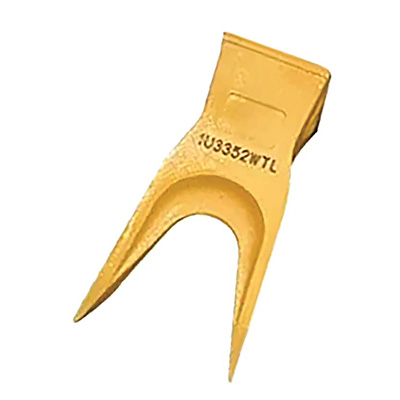
Single and Twin Tiger Teeth
Tiger teeth are shaped like their feline namesake’s teeth and thus are suited to take bites out of hardened earth. Some drawbacks of these teeth are that they tend to be significantly more expensive
than chisel teeth and do not leave a smooth bottom when digging.
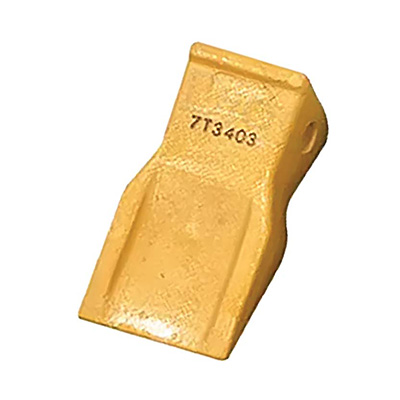
Flared Teeth
Flared teeth are shaped like wide flat shovels, but are generally not intended for ground penetration. They’re used to clear and clean surfaces. Think of them as the concrete floats
of the bucket teeth world.
Can’t Find Your Bucket Teeth Online?
Request a Quote from Our Experts
We have access to over 10 million parts not listed in our store.
Tooth Materials
The material that bucket teeth are composed of affects the durability and job range of the teeth. Some materials are suited for heavy duty applications while others are more cost effective.
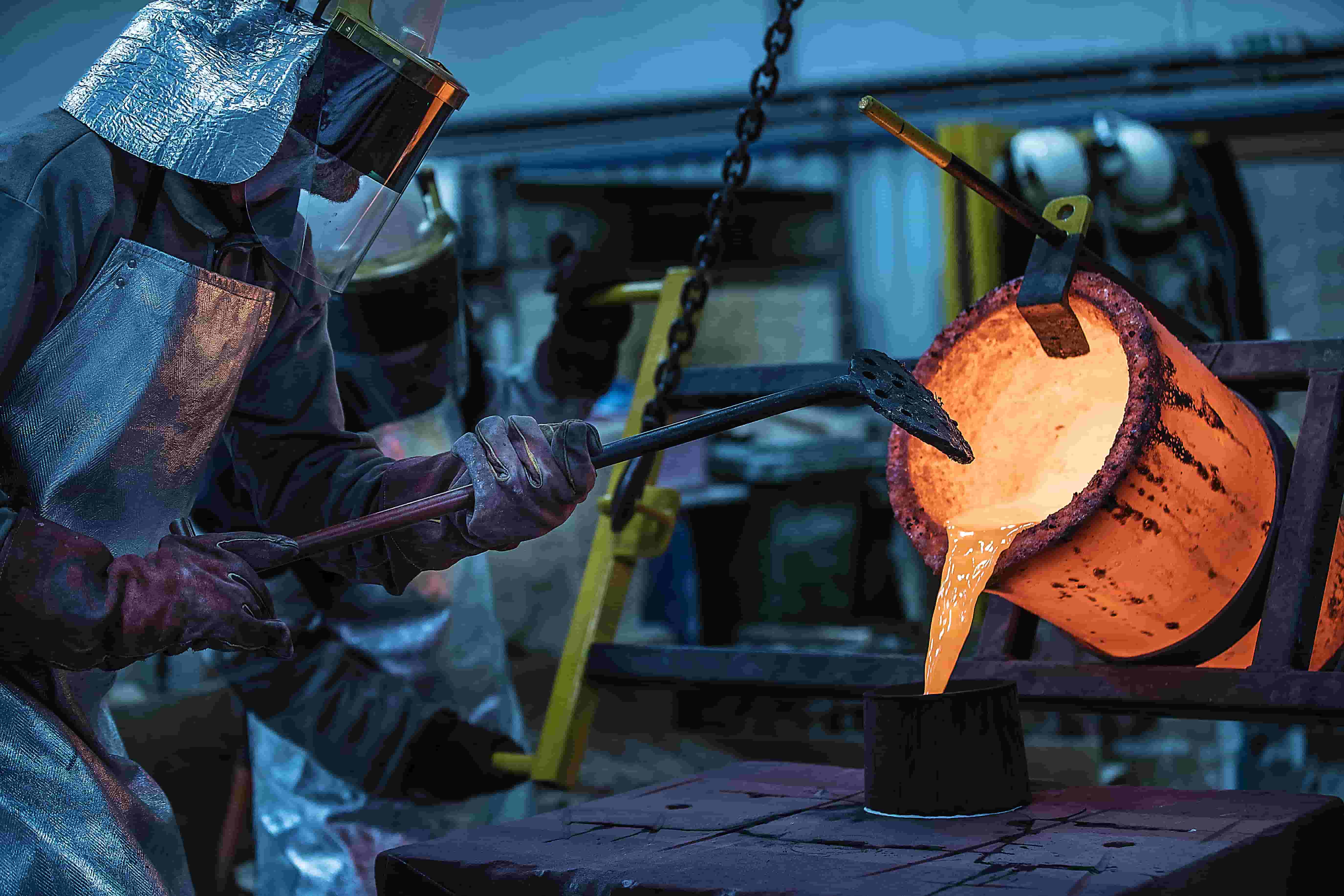
Cast Iron Bucket Teeth
Cast Iron is the most cost-effective method of producing bucket teeth without sacrificing durability. Cast or cast iron teeth are made in much the same way as a cast iron skillet.
Liquid metal containing an alloy of steel or iron, along with other elements like nickel, are poured into a mold. This results in a solid piece of metal that is durable. Cast iron teeth are generally easier to replace
given their cost and provide a prime solution for general applications. Where they fall behind are heavy duty tasks. Generally speaking, cast iron teeth are used when extreme stress and impact are not as large a concern.
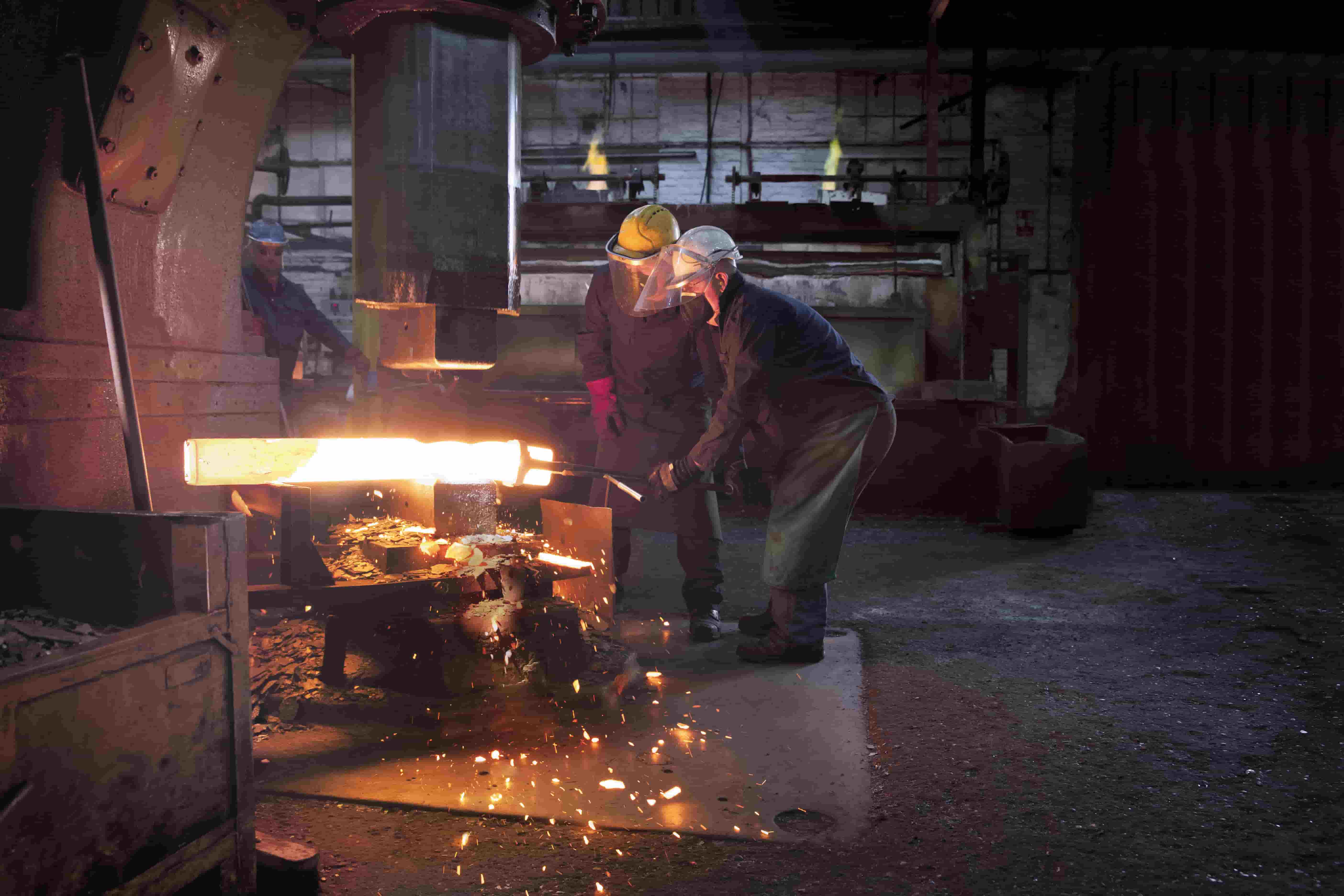
Forged Bucket Teeth
The other method for creating bucket teeth is forging the teeth like you would a sword. Various slabs of metal are assembled and heated until they become pliable, and then placed under pressure to fuse the metals together. From there, the fused metal is worked into the proper shape. The benefits of forged teeth are that they tend to be denser and thus offer superior resistance and durability to cast teeth. They’re typically used in higher stress environments such as rock excavation and mining. They come at a much higher cost when compared to cast iron teeth, so they may not be the ideal solution for the everyday contractor.
Order Bucket Teeth and More than 10,000 Other Parts Anytime with the New Conequip Webstore
Browse the ConEquip Online Store
Find parts fast, start with make, model, or part number.
When to Change Your Bucket Teeth
When to change your bucket teeth depends on multiple factors, including the type of terrain you work in, the material of the teeth, and how often the machine is used. If you’re working in an area with
frosted or compacted ground with cast iron teeth every day, your bucket teeth are going to wear out faster. In general, you should start looking to replace your teeth every six weeks if you use your machine heavily. Even if the teeth are in
good condition at that six-week mark, you should check the teeth daily for wear.
Prefer to Speak with a Parts Specialist?
Call 1-716-836-5069
Our team is standing by to help with complex orders and fitment questions.
How to Choose the Right Teeth for Your Machine
When selecting teeth, there are multiple factors to consider, primarily cost, working conditions, material hardness, and wear life.
You should think about what your machines are primarily used for. If you work in an area with a lot of clay deposits or hard ground, going a more durable option like forged teeth. That also goes along with the type of teeth you select. Generally speaking, the more durable and more specialized a tooth is, the higher the cost. That’s not to say that lower cost options aren’t viable; if your machine is only used for low-impact work, it may be a better option financially to purchase general cast-iron fang teeth.
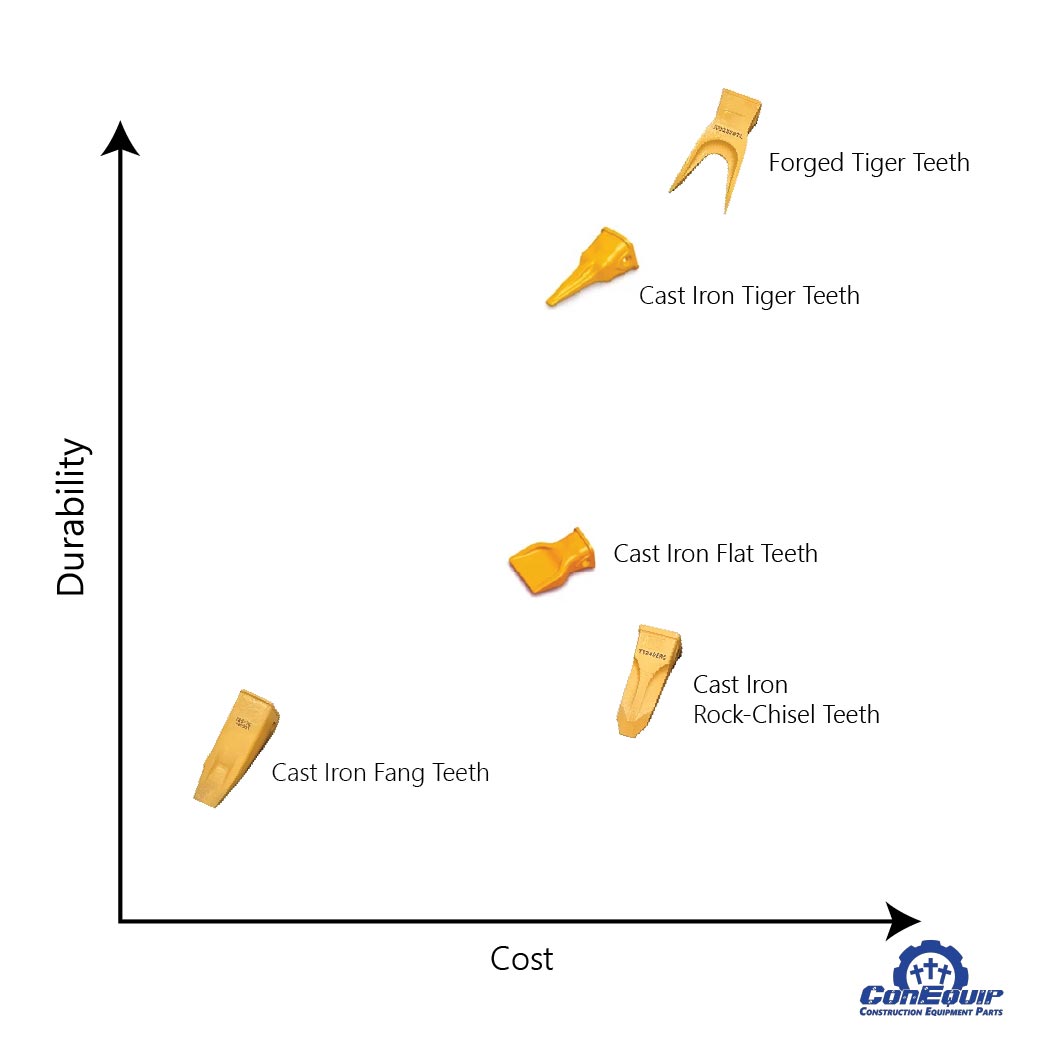
Regardless of what type and material you select, ConEquip is happy to help you get what you need. And now with our online store, it’s easier to get what you need after hours.
![]()
No Call Needed—Just Click and Buy
Order Heavy Equipment Parts Online
Simple checkout, live inventory, and 24/7 access to parts.



